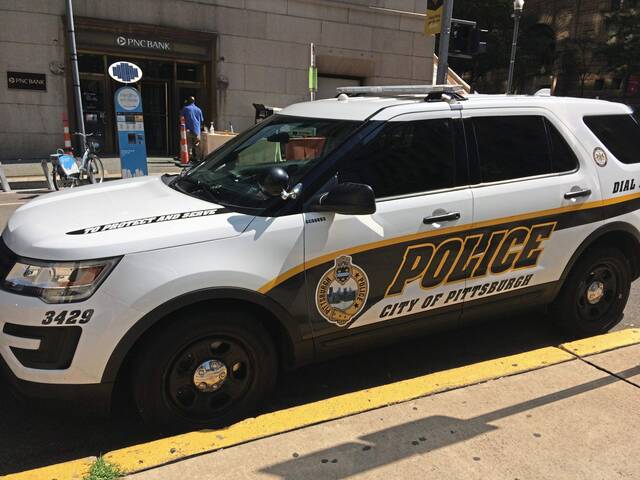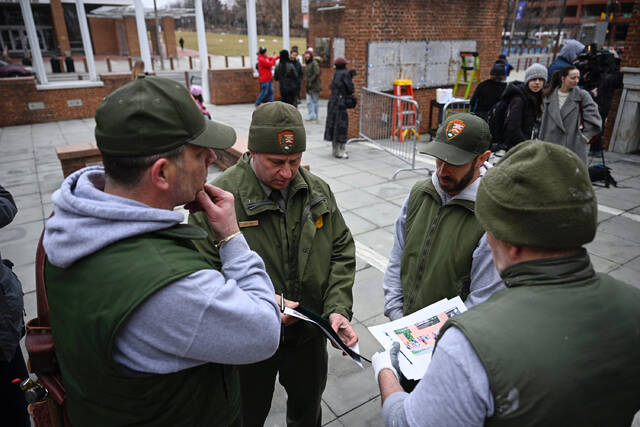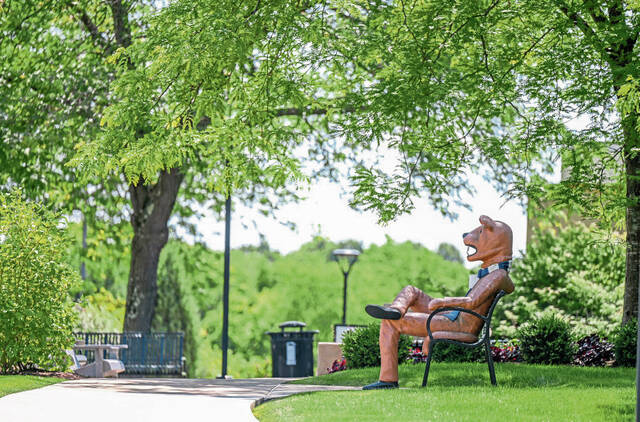City Council on Monday continued debate about a measure that would prohibit Pittsburgh police from pulling people over for minor, secondary violations.
Though council was originally scheduled to vote on the legislation Monday, members delayed the final until next Tuesday at the request of Councilman Anthony Coghill, who has repeatedly voiced concerns about the proposal.
The legislation, introduced by City councilman Ricky Burgess in early November, would prohibit police from pulling over a driver for minor, secondary offenses, including:
- Having a burned-out brake light or headlight.
- Having an improperly displayed license plate or temporary tag, as long as it is visible.
- Having a registration, inspection or emissions sticker that is expired by less than two months
Supporters have said the measure would address a disproportionate number of traffic stops involving people of color and reduce the likelihood of traffic stops escalating into violent incidents.
Councilman Bobby Wilson pointed to statistics provided by the city’s Crime Analysis Unit that showed that in 2016, more than 80% of people who were pulled over for secondary violations and then arrested for other charges were Black. By 2021, he said, that number jumped to 100%.
“I know this isn’t going to solve the whole issue of disparity,” he said. “We should look into why that’s happening, and I think that’s a good start.
Pittsburgh Police data show that officers conducted 4,650 traffic stops involving Black motorists in 2020, compared to 4,513 involving white motorists and 120 involving Hispanic or Latino motorists. About 23% of Pittsburgh’s residents are Black, just more than 3% are Hispanic or Latino and 65% are non-Hispanic or non-Latino white, according to Census figures.
City Council last week tweaked the legislation in response to input from Police Chief Scott Schubert and Director of Public Safety Wendell Hissrich.
The proposed changes would allow for a 120-day training period to ensure officers understand the new law before it is enacted. It also provides for an annual review process “to make sure it’s being effective,” Burgess said.
A third element would create the 60-day grace period for late vehicle and emissions inspections. If a car inspection was expired for more than 60 days, officers would be allowed to pull over that vehicle, under the legislation.
Coghill last week said he felt the proposed legislation presented a “safety issue” as drivers would operate vehicles that weren’t up to vehicle code standards. He argued that police data didn’t add up with claims that traffic stops escalate to violent incidents that need to be limited through such measures.
He cited statistics showing that from 2018 through 2020, Pittsburgh Police conducted about 52,000 vehicle stops. Of them, only 11 resulted in police pulling out a taser or firearm or using another method of physical restraint. In only one instance did an officer fire his gun, and that was only after someone in the vehicle fired at him, Coghill said.
Coghill on Monday argued that the legislation should be paused and a public hearing should be held.
“My district wants to talk about it. They want to comment on it,” he said, urging council to consider a more robust public process on the measure. “I just felt it would be rushed without being thought out.”
He also noted that several questions about the policy’s implementation remain unanswered. Hissrich last week noted that the police aren’t allowed to mail citations for such offenses by Pennsylvania law. Schubert said such changes should be made on a state level, or else the rule may get confusing because it will be different from one jurisdiction to the next.
Councilman Bruce Kraus said the measure has been on the table for 45 days, meaning there was “ample time” to host public hearings and address concerns earlier.
Council President Theresa Kail-Smith said the conversation can continue even after the bill is passed, and the measure can be amended.
“I think this issue is so important to the public that let’s pass it and work through,” she said.
Kail-Smith acknowledged there is a risk of unintended consequences with the legislation. In that case, she said, “When something’s not right, we change it.”
She said her district — and Coghill’s — weren’t likely to be supportive of the measure, but she felt it was in the best interest of the city at large.
The fact that Hissrich and Schubert have been involved in the conversation, she said, is key. They should remain part of larger conversations as the measure progresses, she said.
While a main element of the legislation is ensuring residents feel safe on the roads, “we also don’t want our officers to feel unsafe or unsupported by us,” Kail-Smith said.
Burgess, who sponsored the measure, said he wants to see a final vote by the end of the year. There is one more City Council meeting scheduled this month.
Because a final vote on the measure was postponed, City Council took a second preliminary vote Monday. Coghill was again the only opposing vote. Kail-Smith had previously abstained from the initial preliminary vote, saying she needed more information. She voted in favor of the measure Monday.








